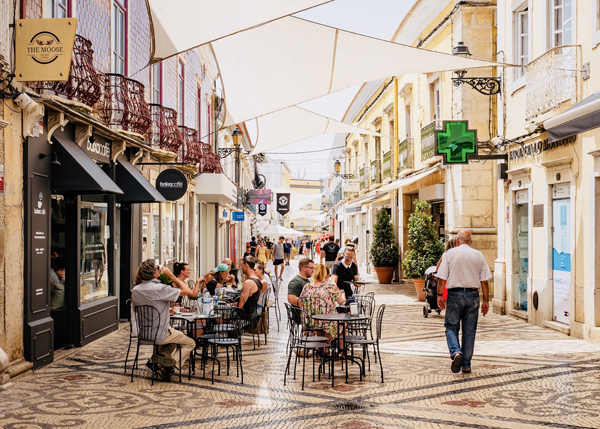
Thinking about moving to Faro? Below we highlight some of the pros and cons of living in Faro.
Located in the heart of the Algarve region, Faro is a city that offers a unique blend of traditional Portuguese culture and modern amenities. With its stunning beaches, rich history, and vibrant nightlife, Faro has become a popular destination for both tourists and expats. But like any city, living in Faro has its pros and cons. In this article, we will delve into the advantages and disadvantages of making Faro your home.
Pros of Living in Faro
One of the biggest advantages of living in Faro is its climate. The city enjoys a Mediterranean climate with hot summers and mild winters. This means that you can enjoy outdoor activities all year round. Whether you’re a fan of water sports, hiking, or simply lounging on the beach, Faro’s weather is perfect for outdoor enthusiasts.
Another major pro of living in Faro is its cost of living. Compared to other European cities, Faro is relatively affordable. Rent, groceries, and dining out are all cheaper here than in many other parts of Europe. For example, a meal at a mid-range restaurant in Faro can cost around €15, while in London, you could expect to pay at least double that amount.
Faro is also a city rich in culture and history. The old town, with its cobblestone streets and medieval walls, is a testament to the city’s past. There are also numerous museums and galleries to explore, such as the Faro Municipal Museum, which houses a collection of artifacts dating back to the Roman era. For those interested in volunteering, organizations like the Faro City Hall and the Algarve Archaeological Association often need help with cultural events and archaeological digs.
Despite being a small city, Faro has a vibrant nightlife. The city center is packed with bars and clubs that cater to all tastes. Whether you’re into jazz, rock, or electronic music, you’re sure to find a place that suits your taste. And if you’re a fan of craft beer, Faro has several breweries, like the Algarve Rock Brewery, where you can sample local brews.
Finally, Faro’s location makes it an ideal base for exploring the rest of the Algarve region. The city is well-connected by bus and train, making it easy to visit nearby towns and beaches. Plus, Faro Airport offers flights to many European destinations, making it convenient for those who love to travel.
Cons of Living in Faro, Portugal
While Faro has many advantages, it also has its share of disadvantages. One of the biggest cons of living in Faro is the language barrier. While English is widely spoken in tourist areas, you may find it difficult to communicate in more residential areas or when dealing with bureaucracy. Learning Portuguese can be challenging, but it’s essential if you plan to live in Faro long-term.
Another downside of living in Faro is the lack of job opportunities. While the tourism industry is booming, other sectors are less developed. If you’re not in the tourism or hospitality industry, you may find it difficult to find a job. Volunteering can be a good way to gain experience and make connections, but organizations like the Faro City Hall and the Algarve Archaeological Association often require a good level of Portuguese.
Faro’s popularity as a tourist destination can also be a disadvantage. During the summer months, the city can become crowded with tourists, leading to increased prices and longer waits at restaurants and attractions. The influx of tourists can also put a strain on the city’s infrastructure, leading to issues like traffic congestion and noise pollution.
While Faro’s cost of living is lower than in many other European cities, it’s worth noting that wages are also lower. This means that while things may seem cheap, you may also be earning less than you would in another city. It’s important to consider this when deciding whether to move to Faro.
Finally, while Faro’s climate is generally pleasant, it can get extremely hot in the summer. Temperatures often reach the high 30s (Celsius), which can be uncomfortable if you’re not used to such heat. Air conditioning is not common in many homes, so it’s something to consider if you’re planning to move to Faro.


